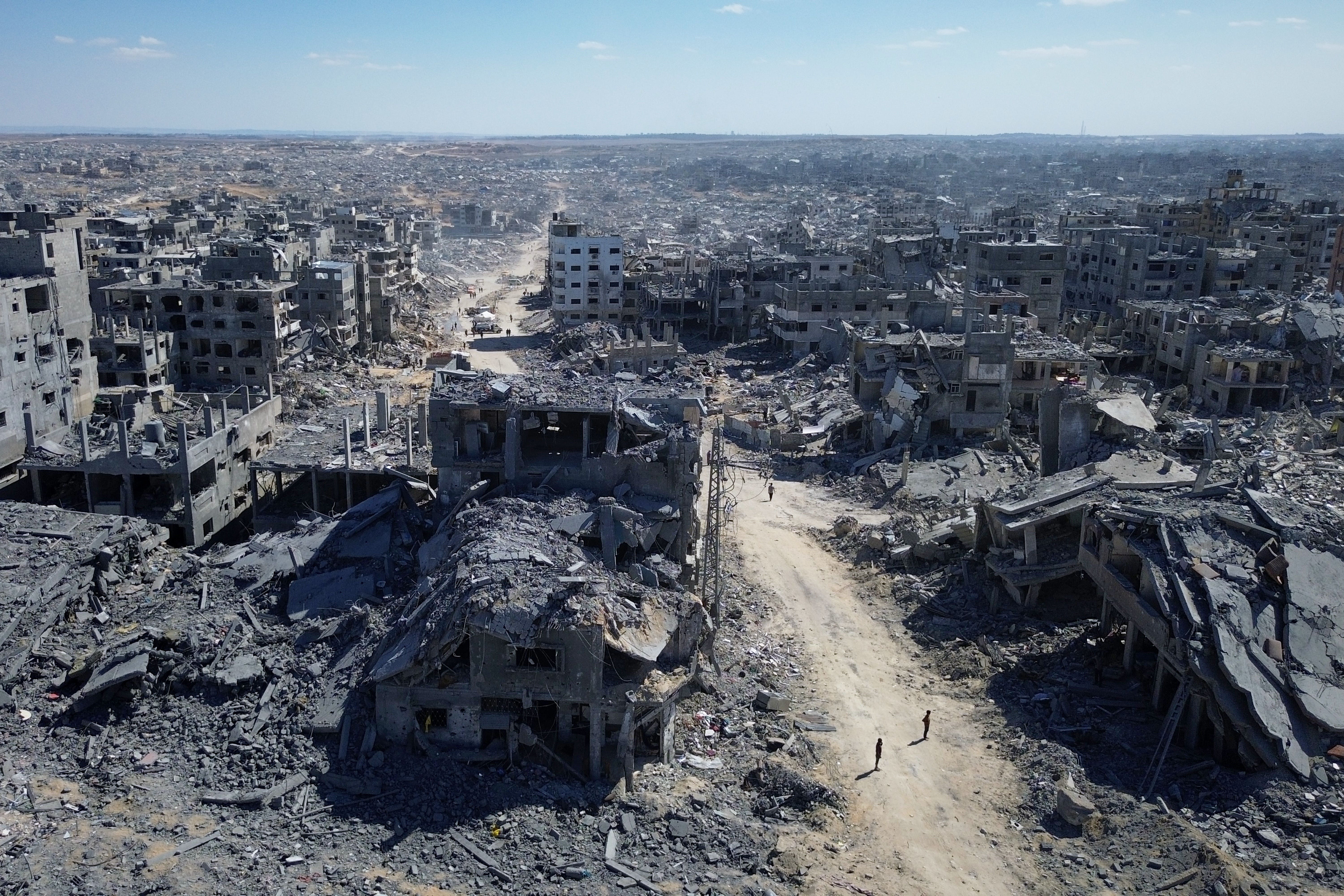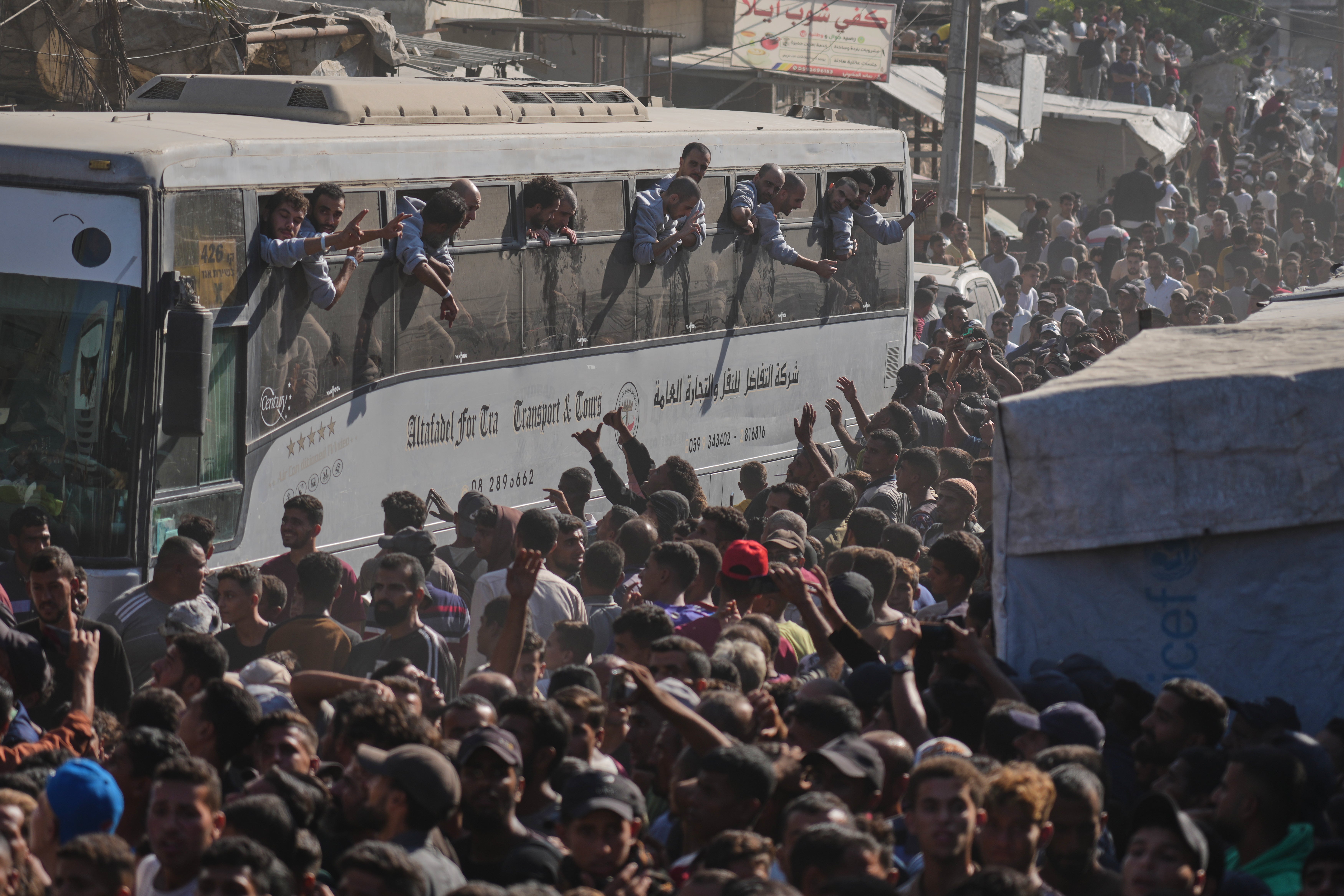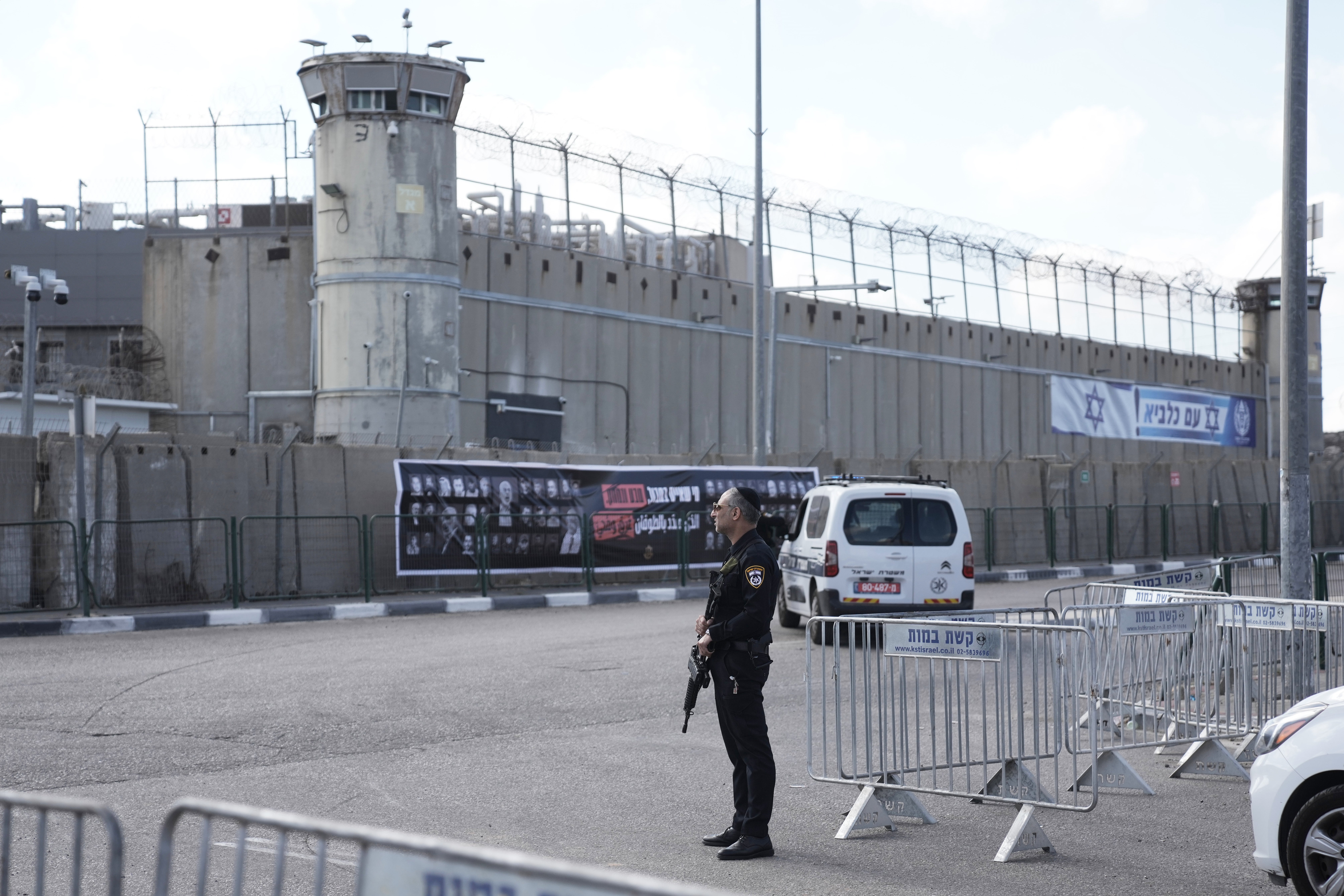Nassem waited two years to be reunited with his wife and four children in Gaza, surviving an Israeli prison where he was held without charge and without contact with the outside world.
The 30-year-old Palestinian was arrested by the Israeli military in December 2023 at a checkpoint in Gaza, and was among 1,700 Palestinians from the Strip – all held without charge or trial – released in a ceasefire exchange swap brokered by Donald Trump.
But when he returned home, he found almost his entire family had been wiped out and his house razed to the ground.
“The image of my family has never left my memory. All I could think when I was freed was of being united with them. That’s now a mirage,” he tells The Independent in desperation.
The only family member left alive is his four-year-old daughter: “My wife, my son, my two daughters, my mother-in-law – all killed, all dead. I am a prisoner of grief.”
Amid the jubilant aftermath of Trump’s ceasefire deal, Palestinians in Gaza have been coming to terms with the devastating consequences of two years of unprecedented bombardment by Israel, which has killed more than 67,000 people, according to local officials, and reduced vast areas to rubble.
Many freed detainees, like Nassem, found they had nothing left to return to. Dr Bilal al-Masr, held without charge since December 2024 after his hospital, Kamal Adwan, was besieged and stormed, also came home to a razed neighbourhood and nightmares of alleged abuse.

“I returned free to a shackled homeland without a home, without a hospital, without a life,” he says. “We could hear the screams of detainees at night.”
The initial part of Trump’s deal was meant to see Hamas release all 48 of the remaining living and deceased hostages seized from Israel during their 7 October attack. The militant group is still handing over the remains, with around 16 bodies of hostages still in Gaza, at great distress to their families.
In return, Israel released nearly 2,000 Palestinians held in Israeli jails and hundreds of bodies of dead Palestinians.
Of the Palestinians arrested from the Strip since October 2023, it is understood that all of them, like Nassem, were held under Israel’s deeply controversial “unlawful combatant” law.
This allows Israel to hold people indefinitely without charge and has been criticised by rights groups for violating international law.

Returning detainees describe abuse, torture, and even allege that summary executions occurred in detention centres.
Forensic doctors in the Strip shared images of over 160 bodies returned. At least one body appears crushed with large grooves etched into the flesh, feared to be the markings of tank or military bulldozer caterpillar tracks.
Dr Ahmed Duhair, director of forensic medicine at Nasser Hospital, which is managing the identification process, says many bodies were naked except for underwear and there were some cases where “wrists and ankles [were] bound, with clear marks on their bodies, indicating that torture tools had been used”.
In a statement, the Israeli military said all the bodies it has sent back to Gaza were “from battles within the Gaza Strip, and not of detainees [who were] taken alive to Israel”.
It added that it “operates strictly in accordance with international law in stark contrast to the murderous terror organisation Hamas, which slaughtered civilians, desecrated bodies”.
The IDF has previously said it “completely rejects allegations of systemic abuse of detainees in its detention facilities”.
The Israeli Prison Service said it was not aware of the claims described and “to their best of their knowledge, no such incidents occurred under IPS responsibility”.
It added: “All inmates are held according to legal procedures, and their rights, including access to medical care and adequate living conditions, are upheld by professionally trained staff.”
However, The Independent’s own investigation into the treatment of Palestinian detainees in multiple jails in Israel, run in part by the military and the IPS, revealed evidence of abuse, torture, sexual violence and even deaths in detention over the last two years.
Majdi al-Darini, 55, a father-of-five from Jabalia camp and an employee of Hamas’s rival, the Palestinian Authority, claims he was subjected to “severe beatings, assaults and abuse” and witnessed an execution while detained.
He was arrested in Gaza two months ago at an aid distribution site and held in Sde Teiman, a former military base turned detention centre in southern Israel.

He said the soldiers would sometimes play deafening music and “leave it on for hours, preventing us from sleeping”.
At one point, he claims, he was dragged violently outside with four other men and asked to stand in a line.
“I heard the weapon being drawn for the second time, followed by heavy gunfire. I turned around and found the four men lying on the ground covered in blood. They had been deliberately executed at point-blank range.”
The Independent asked the Israeli military for comment on this allegation – the military denied summary executions of detainees.
Dr al-Masr, held without charge since December 2024, was among seven doctors and dozens of nurses and paramedics that Physicians for Human Rights Israel (PHRI) says were freed in this month’s deal.

Healthcare Workers Watch (HWW), a Palestinian monitor, say 115 Palestinian medical professionals remain held without charge in Israeli jails, including Hussam Abu Safiya, who was the director of the hospital Dr Bilal worked at. HWW said Israel is also holding the bodies of four medics who died while in custody.
PHRI has issued multiple reports accusing Israel of deliberately targeting Gaza’s medics, hospitals, and the healthcare system in general.
Dr Bilal described hunger, deprivation of clean water, food, and medication also inside Sde Taiman: “They didn’t allow us to shower or change our clothes, and even sick people didn’t receive medical treatment.”
Another released detainee, Saed, 37, also held in Sde Teiman for nearly two years, describes similar treatment, including blaring music and beatings.
“We were half-naked in the winter, suffering from the severe cold, with our hands and feet bound, and treated like animals. One day, they poured hot water over our bodies as a form of torture.”

When he returned to Gaza, he learnt that dozens of his family members had been killed – including his brother, uncles on both sides, and cousins.
“I felt as if I had left one prison and entered a larger one. Today, Gaza is no longer liveable. The scale of the destruction is beyond our ability to bear.”
Now medics in Gaza are starting the long task of identifying the bodies of Palestinians taken by Israel.
For Nassem, and hundreds of others, he is now starting the long process of putting his life back together.
“My heart is filled with immeasurable pain. Freedom from the loss of loved ones is not freedom but a return to a pain greater than captivity itself.”







